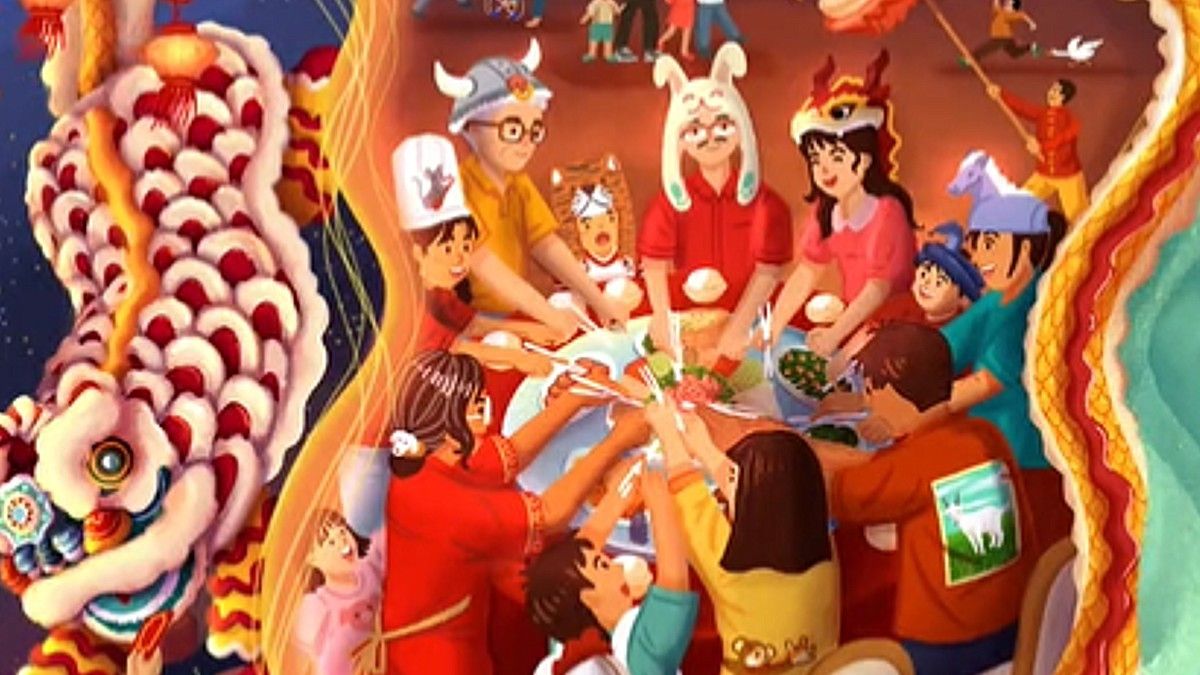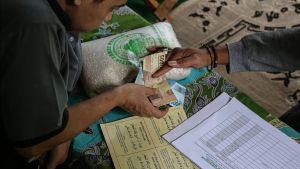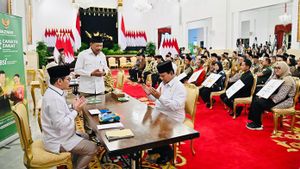JAKARTA - President Joko Widodo (Jokowi) said happy Chinese New Year 2573 Khongzili. Jokowi also left hope accompanied by uploads of illustrations from the public celebrating the 2023 AD Chinese New Year.
"Times have changed, years have passed, and challenges may change, but one must always be present, namely the hope that tomorrow will be happier, more prosperous, and more advanced," Jokowi wrote on his Instagram account @jokowi, Sunday, January 22.
"Gong Xi Fa Cai," he continued.
For information, Chinese New Year is the first day celebration in the first month of Chinese society. In Masehi, Chinese New Year is celebrated on a different date every year. In 2022, Chinese New Year celebrations will fall on January 22.
Chinese New Year celebrations in Indonesia are a form of freedom. In today's era, every ethnic Chinese in the archipelago has the right to celebrate Chinese New Year with joy and joy.
In the past, Chinese New Year was banned in public. Suharto became the actor behind the ban on Chinese New Year in 1967. Then, the 4th President of the Republic of Indonesia, Abdurrahman Wahid (Gus Dur) became a'survival champion' who perpetuated the Chinese New Year celebration, at least to this day.
In the Suharto era, all religious ceremonies and customs of the Chinese were also prohibited. Drawing back, since colonial times, the relationship between the Dutch colonial government and ethnic Chinese was described as quite strange.
All of this, because Suharto issued Presidential Instruction Number 14/1967 concerning China's Religion, Trust, and Customary Istiadat. The instructions stipulate that all Chinese religious, belief, and customs ceremonies should only be celebrated in the family environment and in a closed room.
A bright spot for ethnic Chinese life that is completely restricted ended after Gus Dur replaced BJ Habibie as the 4th President of the Republic of Indonesia. The father of pluralism, who is known to be brave and consistent in defending the rights of minorities, became a savior.
Thanks to him, ethnic Chinese are allowed to celebrate Chinese New Year again in public for the first time on January 17, 2000. The move was later known as a form of respecting minorities within the framework of the implementation of the philosophy: Bhinneka Tunggal Ika.
Then, the Chinese New Year was officially designated as a national holiday. Gus Dur did not mind which bumiputra and nonbumiputra were returning. He thinks there is no such thing as a descendant of the original people in Indonesia.
The English, Chinese, Japanese, Arabic, and French versions are automatically generated by the AI. So there may still be inaccuracies in translating, please always see Indonesian as our main language. (system supported by DigitalSiber.id)









